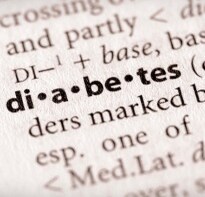A simple, non-invasive test that detects a sweet-smelling chemical marker in the breath could
diagnose children with type 1 diabetes, Oxford scientists have found. In one of the most comprehensive breath-based studies of children with type 1 diabetes, researchers have linked a sweet-smelling chemical marker in the breath with a build-up of potentially harmful chemicals in the blood that accumulate when insulin levels are low.
cause severe illness. Acetone, which is the simplest ketone, is one of the by-products produced in the development of DKA and is usually disposed of through the breath. Acetone has been known to produce a sweet smell on the breath of diabetes sufferers. In the study, the researchers, from the University of Oxford, Oxford Medical Diagnostics and Oxford Children's Hospital, collected the breath samples from 113 children and adolescents ageing between 7 and 18. Isoprene and acetone were collected in breath bags and measurements were compared with capillary blood glucose and ketone levels, which were taken at the same time during a single visit to Oxford Children's Hospital. The researchers found a significant relationship between increased levels of acetone in the breath of the subjects and increased levels of blood ketones - specifically beta hydroxybutyrate. They found no link between isoprene and acetone levels in breath and glucose levels in the blood. "Our results have shown that it is realistically possible to use measurements of breath acetone to estimate blood ketones," said co-author of the study, Professor Gus Hancock.
diagnose children with type 1 diabetes, Oxford scientists have found. In one of the most comprehensive breath-based studies of children with type 1 diabetes, researchers have linked a sweet-smelling chemical marker in the breath with a build-up of potentially harmful chemicals in the blood that accumulate when insulin levels are low.
cause severe illness. Acetone, which is the simplest ketone, is one of the by-products produced in the development of DKA and is usually disposed of through the breath. Acetone has been known to produce a sweet smell on the breath of diabetes sufferers. In the study, the researchers, from the University of Oxford, Oxford Medical Diagnostics and Oxford Children's Hospital, collected the breath samples from 113 children and adolescents ageing between 7 and 18. Isoprene and acetone were collected in breath bags and measurements were compared with capillary blood glucose and ketone levels, which were taken at the same time during a single visit to Oxford Children's Hospital. The researchers found a significant relationship between increased levels of acetone in the breath of the subjects and increased levels of blood ketones - specifically beta hydroxybutyrate. They found no link between isoprene and acetone levels in breath and glucose levels in the blood. "Our results have shown that it is realistically possible to use measurements of breath acetone to estimate blood ketones," said co-author of the study, Professor Gus Hancock.
Advertisement
For the latest food news, health tips and recipes, like us on Facebook or follow us on Twitter and YouTube.
Advertisement
